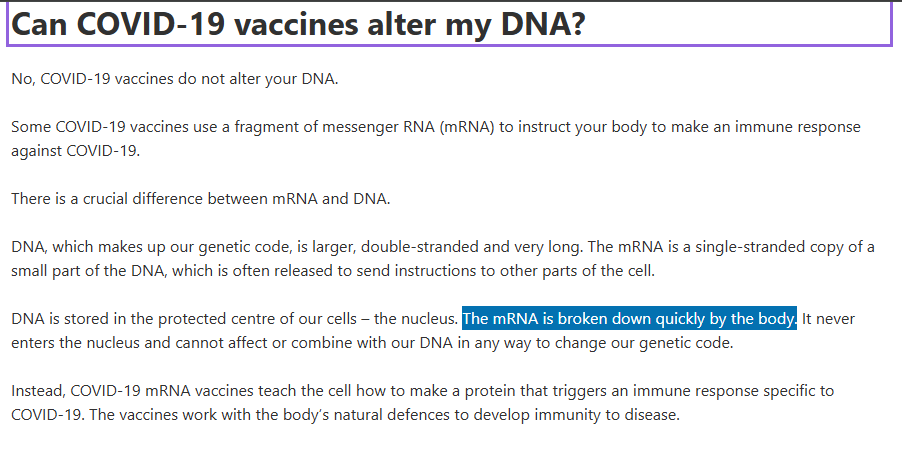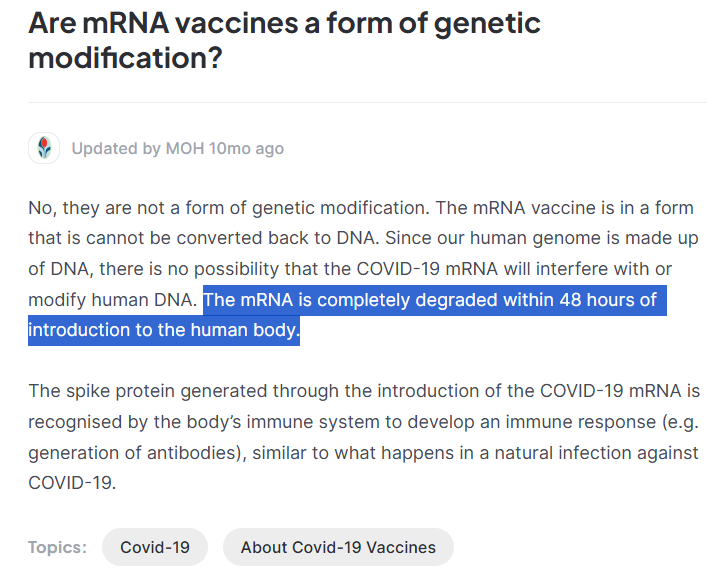In over half of all cancers, a single gene—p53, dubbed the "Guardian of the Genome"—goes rogue, letting cancer tumours run wild. Dr. Wafik El-Deiry cracked its code in the 1990s, discovering its DNA-binding site and p21, paving the way for life-saving drugs like palbociclib that keep cancer at bay for millions. With over 112,000 citations and leadership at Brown’s Legorreta Cancer Center, he’s now a top contender to head the National Cancer Institute in 2025, where he could steer the ship on probing these rising threats. His recent podcast with Dana Parish is a must-listen, packed with eye-opening revelations on how the spike protein might be sabotaging p53, fueling the cancer crisis we're seeing explode right now.
For those of you who are unfamiliar with the importance of the P53 gene, picture p53 as your body’s ultimate security guard, constantly scanning your DNA for any glitches caused by things like ultra processed food, forever-chemicals, or even everyday stress. When it spots damage, p53 doesn't mess around—it either calls in repairs to fix the broken DNA or hits the kill switch on those faulty cells, forcing them to self-destruct before they can multiply into a tumour. Without p53 doing its job, cells gone bad just keep dividing, leading to cancer. That's why it's called the "Guardian of the Genome"—it's our first line of defense against the big C.
Dr. El-Deiry jumped into this mystery back in 1991, as he shared in the podcast: "So P53 is a major so called tumor suppressor gene that we all have. I may be a little bit biased, but I think it's the most important tumor suppressor gene. And the published literature has well over 100,000 papers published on P53." His work peeled back the layers on how p53 works, making it the rock star of cancer research.
El-Deiry's breakthroughs were game-changers. In 1992, he pinpointed p53's DNA-binding site, basically figuring out how this guardian latches onto DNA to flip the switches on protective genes. Then, in 1993, he discovered p21 as p53's key partner, a gene that slams the brakes on cell division when things go wrong. He used clever tools like reporter genes—think of them as glowing tags, that light up when p53 activates its targets—to prove these connections in the lab.
But here's where it gets alarming: cancer isn't just creeping up on the elderly anymore—it's hitting younger folks hard. For example a recent paper from JAMA which is just published this month (August 4, 2025) found that Colorectal Cancer incidence in adults aged 45-49 grew steadily at 1% annually.
However, from 2019 to 2022, this surged to a 12% annual increase, with rates climbing from 9.4 per 100,000 in 2019 to 11.7 in 2021 (a 25% relative increase) and 17.5 in 2022 (a 50% jump from 2021!).
Let’s summarize this for emphasis:
In 2019: 9.4 cases per 100,000
In 2021: 11.7 per 100,000 (25% increase from 2019)
In 2022: 17.5 per 100,000 (50% increase from 2021)
The paper claims earlier detection of colorectal cancer likely boosted the incidence, but if you think a near-doubling of cases from 9.4 to 17.5 per 100,000 in just three years (2019 to 2022), right after the mass genetic therapy rollout, is solely due to earlier screening, you’d need to get your head checked.
Dr. El-Deiry also dives into his latest paper linking the spike protein—from both COVID-19 infection and the mRNA vaccines—to p53 suppression. As he explained, his team got hands-on: "You know, we buy reagents and express the spike in human cells and look at the effects on P53. And we had the expertise to interrogate those effects on P53. So eventually we got around experiments. The results suggested that if you express the spike protein in human cells and we use human tumor cells because they grow easily in the lab, and we could do these experiments and some human tumor cells still have wild type P53, which means it's not mutated. And we were able to demonstrate that the spike attenuates the activity of P53."
In plain terms, when spike protein enters cells, it weakens p53's ability to rally its cancer-fighting genes, especially when stressed by things like chemo. "So the data shows in a setting where that spike protein gets into a cell, if that cell is triggered to activate the p53 response, for example, by chemotherapy. And we did those experiments, when the spike is expressed, the ability of P53 to activate those genes that we've discovered decades ago was reduced," he added.
This isn't just lab talk—it could explain the weird cancer spikes we're seeing post-COVID era. El-Deiry views p53 as our body's watchdog for health: "Because I look at P53 as controlling a host response that keeps us healthy, keeps us from developing cancer. And here, when we express the spike protein, whether it's coming from infection or a vaccine, it seemed to interact with the function of P53 and attenuate it."
He brings up the mRNA vaccines' Nobel Prize-winning trick with pseudouridine, which makes the RNA super stable: "We've read reports about the spike protein traveling and disseminating. I mean one of the interesting things with the mRNA vaccines, I mean it won the Nobel Prize. You know, normally RNA, if you breathe on it, it degrades and goes away. The Nobel prize winning discovery was if you substitute pseudouridine in the RNA it becomes stable."
Remember the time when governments around the world said mRNA quickly degrades? Good times! This is why we call it modRNA instead of mRNA.
But as NIH Director Dr. Jay Bhattacharya noted, and El-Deiry echoed, "when you inject this mRNA vaccine in humans, we don't really control the dose of the product that the injection makes. We don't control the biodistribution or ultimately what happens within the human body."
El-Deiry doesn't stop at theory—he points to real-world red flags. "I mean, I was impressed by some reports that showed growth of sarcomas in the arm," he said, with Dana Parish chiming in about knowing a young woman who experienced that. "Yeah, I mean, how does that happen? I mean, you're injecting there, and please explain how that happens. And I think the blood circulates, the immune cells circulate where injections are given. And so, you know, some lymphomas occurred, but these are anecdotes and sort of in some people's mind, these are the lowest levels of evidence. But you got to start somewhere."
I WOULD URGE PEOPLE TO THINK ABOUT DOING THOSE AUTOPSIES TO HELP MANKIND!
-Dr. Wafik el-Deiry
He's calling for solid data: "I want to see some good data. Why can't we get some good data, good epidemiologic data, and good studies in these specific cases? You know, what's happening to spike if the patients don't make it? I would urge people to think about doing those autopsies to help mankind."
What about DNA Plasmid Contaminations, SV40, IgG4 shifts?
The plot thickens with other cancer-causing suspects like DNA Plasmid Contaminations, and Dr. El-Deiry’s not dismissing them. Dana Parish raised plasmid DNA contamination, spike persistence, immune shifts like IgG4, SV40, and lipid nanoparticles. His take? “I keep an open mind. I think the mechanisms are plausible… People have been pretty dismissive of the DNA fragments, the potential persistence of plasmid DNA that could replicate and get into the genome.” He’s blunt: “We have the tools to get at the truth. We have the tools to look at these things and have evidence speak for itself.” He points to gene therapy’s history, where DNA integration can flip on oncogenes and spark cancer: “Integration events in the human genome are well known… you can get cancer. This is known with gene therapy that has decades of knowledge and experience.” On lipid nanoparticles, which deliver mRNA, he scoffs at the naysayers: “People say well you know, these fragments or these plans, they don’t get into the cells, they don’t get into the nucleus, whatever. I mean the lipid nanoparticles take them there.”
Pharma Trolls Target Dr. El-Deiry after his paper associating Spike Protein with Cancer
Speaking out has painted a target on his back. El-Deiry revealed a barrage of attacks since his spike paper dropped: "I think some of them are not scientists and for the most part I don't think they are truly my peers, regardless of what they say. And they're definitely concerted attacks. I mean, I started noticing these attacks escalating in July of last year to a point where, you know, PubPeer was just targeting my papers going back to the, to the mid-1990s."
For those of you unfamiliar with PubPeer, think of it as a website where scientists and others can discuss and review research papers after they’re published. It’s like a public comment section for science articles. Anyone can point out mistakes, ask questions, or share thoughts about a study, helping to check if the research holds up or needs fixing. It’s like a community watchdog for science, making sure published work is transparent and can be trusted.
Dr. Wafik el-Deiry urges Homeland Security and FBI to investigate these Pharma trolls
Dana Parish asked if it tied to his spike research, and he confirmed the timing: "I became a target. You know, it's circumstantial, but it is in that time frame." The pettiness is staggering—one "concern" was a typo in a supplementary table, misspelling "intubation" as "incubation." "That triggered a whole concern about that. Now anybody who reads the paper with who, who is reasonable and not out to pylon concerns would recognize that's a typographical error," he said.
“Our work is very well known in the field and I will stand by everything we’ve ever published,” El-Deiry asserts, decrying the attackers: “They’re largely not our peers… There’s this entity out there called Science Guardians that is slowly exposing them because there’s a small group of people who work together and they use aliases… and fake accounts.” He laments the toll: “I would like to spend my time doing good to help patients and mankind. And what this has done is waste my time… It’s damage… for other hard working scientists who are innocent.” He urges action: “I think our government, I think Homeland Security, the FBI… need to do something about it.”
While Dr. El-Deiry fights for truth, governments worldwide deserve a swift kick for sitting on their hands. Health honchos like Australia’s TGA peddled the “mRNA degrades fast” lie, only to be schooled by modRNA’s pseudouridine stability—now linked to p53 sabotage and cancer spikes. Yet, governments move at sloth-speed, dodging autopsies and data like it’s their job. Colorectal cancer nearly doubling in three years post-vax rollout? Sarcomas popping up at injection sites? Eleven labs confirming DNA fragments in shots? The public’s not buying the “safe and effective” hogwash anymore. El-Deiry’s call for hard evidence—“We have the tools to get at the truth!”—is a slap in the face to bureaucrats burying their heads. This isn’t just a scandal; it’s a betrayal. Time’s up—fund the vaccine harm studies, probe the cover-ups, or watch the narrative’s toast as the cancer and excess deaths crisis buries you.
Signing off for now
A17
P.S. Hey folks, I’ve been traveling to different countries lately, meeting ex-pharma colleagues and digging into internal drug sales data. I’ll publish it soon, likely in my next article. If you’re interested, don’t forget to subscribe!













